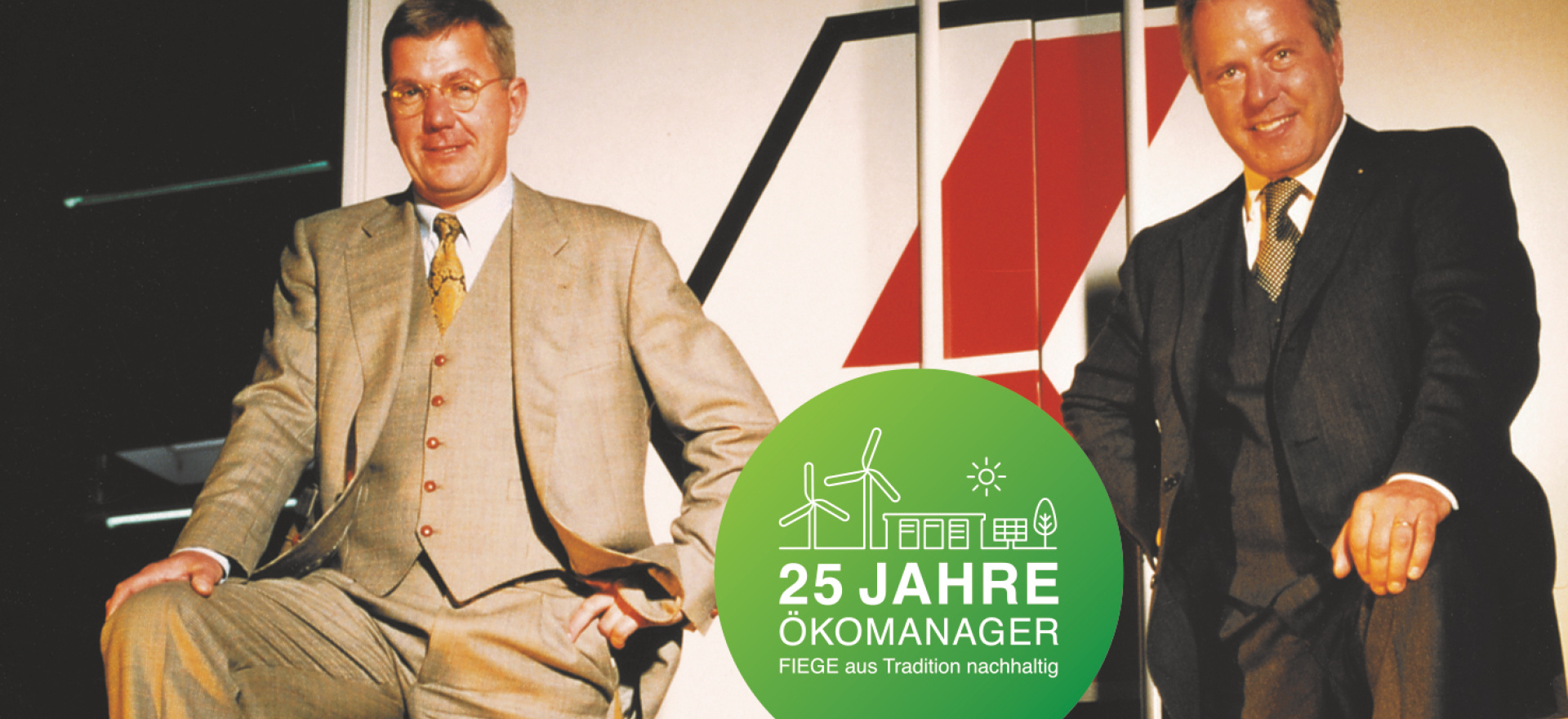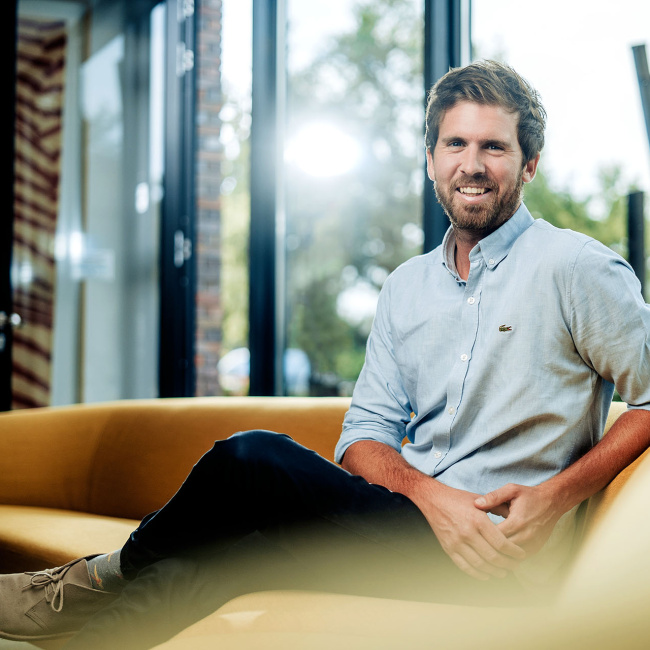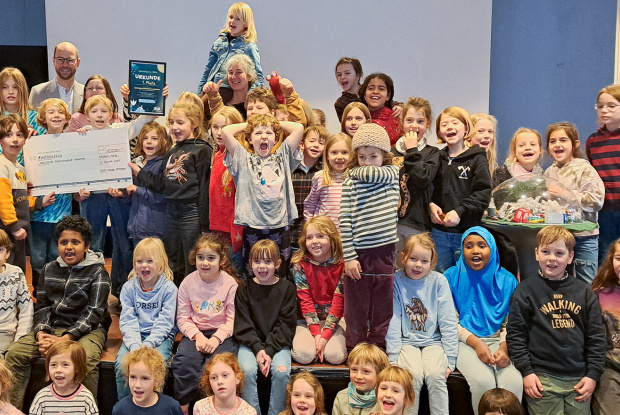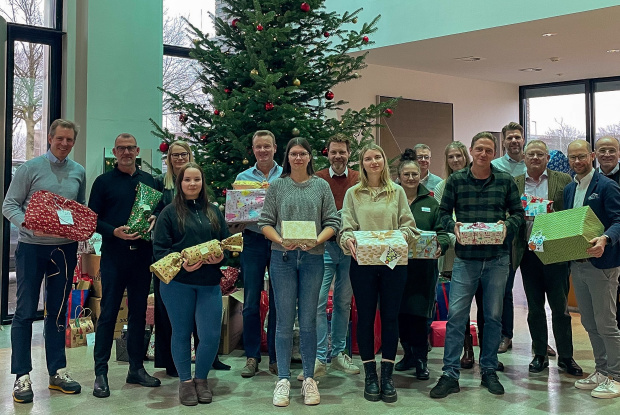Pioneering eco-logistics for a quarter of a century

In the early 1990s, FIEGE devised the pioneering business concept of resource-friendly contract logistics. The company’s then managers, Heinz and Dr. Hugo Fiege, received the Eco-manager of the Year award for this in 1996 – a prize whose effects can be felt to this very day.
We meet with Dr. Hugo Fiege in his office on the ninth floor of the FIEGE system headquarters from where the view extends to the neighbouring Münster/ Osnabrück airport. Even though he retired from activities in 2014 and passed the reigns of the company to his son, Felix Fiege and his nephew, Jens Fiege some seven years ago now, the 72-year-old maintains close ties with the FIEGE Group even today. “Being part of a family business means that you never really leave”, he says, smiling.
For 41 years, between 1973 and 2014, Dr. Hugo Fiege was part of the fourth generation to spearhead the family’s own business together with his brother, Heinz Fiege (with FIEGE since 1967). During this time the siblings managed to grow the Greven-based enterprise into one of Europe’s leading contract logistics providers. At the end of the 1980s, they had the key idea for their success story: “At the time we decided to turn our backs on the genuine transportation of goods and instead, to offer integrated supply chain concepts”, Dr. Hugo Fiege recalls.
Same-level supply, low-level environmental impact
At the heart of the successful model were huge logistics centres, to increase the transport volumes per destination. “According to our theory, they had to span a size that would ensure that the weakest routes in the various regions would always fill one full transport unit in the least”, Dr. Hugo Fiege explains. The concept premiered in 1992 with the opening of the FIEGE Mega Center in Ibbenbüren.
In parallel with this, FIEGE moved large parts of the required transport volume to the railways. “Here, too, the mission was to cover target areas only with full loads and split them on site”, Dr. Hugo Fiege says. The simple yet efficient idea quickly showed its significant impact: “Consolidating helped us to cut the transport volume for our clients by up to 20 per cent which clearly reduces both the impact on the environment as well as costs”, he tells us.
Disruptive approach to logistics
The pro-environment, budget-friendly business model shook the sector like an earthquake. And even the clocks at FIEGE have been ticking differently ever since. “At the time we were still a small business that served clients operating predominantly in the mid-sized sector”, Dr. Hugo Fiege comments. The innovative logistics concept then attracted a totally new customer segment unidentified at the time: “Suddenly, leading DAX groups were knocking on our doors and signed contracts with terms of up to ten years.”
The strong demand-centred growth called for quite the expansion of existing structures. In no time, new premises were built, and competent staff engaged. “At the time, we were most likely one of the fastest growing logistics companies in Germany”, is how Dr. Hugo Fiege summarises the situation.
Distinction for sustainable entrepreneurship
The drastic growth and the concept of eco-logistics quickly made FIEGE the talk of the town even beyond the logistics industry. In 1996, exactly 25 years ago, Heinz and Dr. Hugo Fiege received the Eco-manager of the Year award from the WWF Deutschland foundation and the financial magazine, Capital for their pro-environment actions.
With the honours came access to a fine circle for the siblings: “The years before, the award had been given to great leaders of major groups such as August Oetker (Dr. Oetker), Hans-Dietrich Winkhaus (Henkel), Carlhanns Damm (AEG) or Hans-Olaf Henkel (IBM)”, Dr. Hugo Fiege explains, adding: “We felt and still feel very honoured to be regarded as a model to society at this level.”
Empowering employees to become eco-managers
The role of Dr. Hugo and Heinz Fiege as pioneers of eco-logistics which even became a registered trademark more than 25 years ago is still clearly felt at the company – if not stronger than ever. Last year, FIEGE introduced a three-dimensional sustainability approach: Martin Rademaker, member of the Executive Board at Fiege, details the objective: “We are working on an overall vision which will consolidate all our activities in this realm. Our thoughts span an ecological, economic, and social dimension in this regard.”
The development is advanced via an in-company workstream that encompasses employees from many different areas and management levels of the company. For those in charge, it is specifically important to integrate colleagues. “Within the FIEGE Group there are many fascinating projects already that we are not always fully aware of. It is our declared goal to centre this pan-organisational knowledge and free new resources for sustainable initiatives”, Rademaker explains.
All in the same boat
A feeling that seems very mutual, so the talks and project groups seem to suggest: We are all in the same boat and a common goal is beginning to emerge. Even from the customer’s perspective, the need for sustainable logistics is growing steadily. Although no longer in its infancy, there is still plenty that needs to be done. Rademaker summarises: “We are aware that we are far from perfect. But we have set out on this journey together, to lastingly change tomorrow’s logistics.” The brothers Heinz and Dr. Hugo Fiege took the first steps of this journey a quarter of a century ago already.



